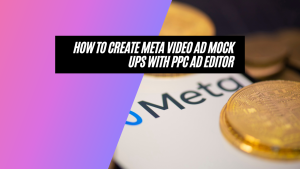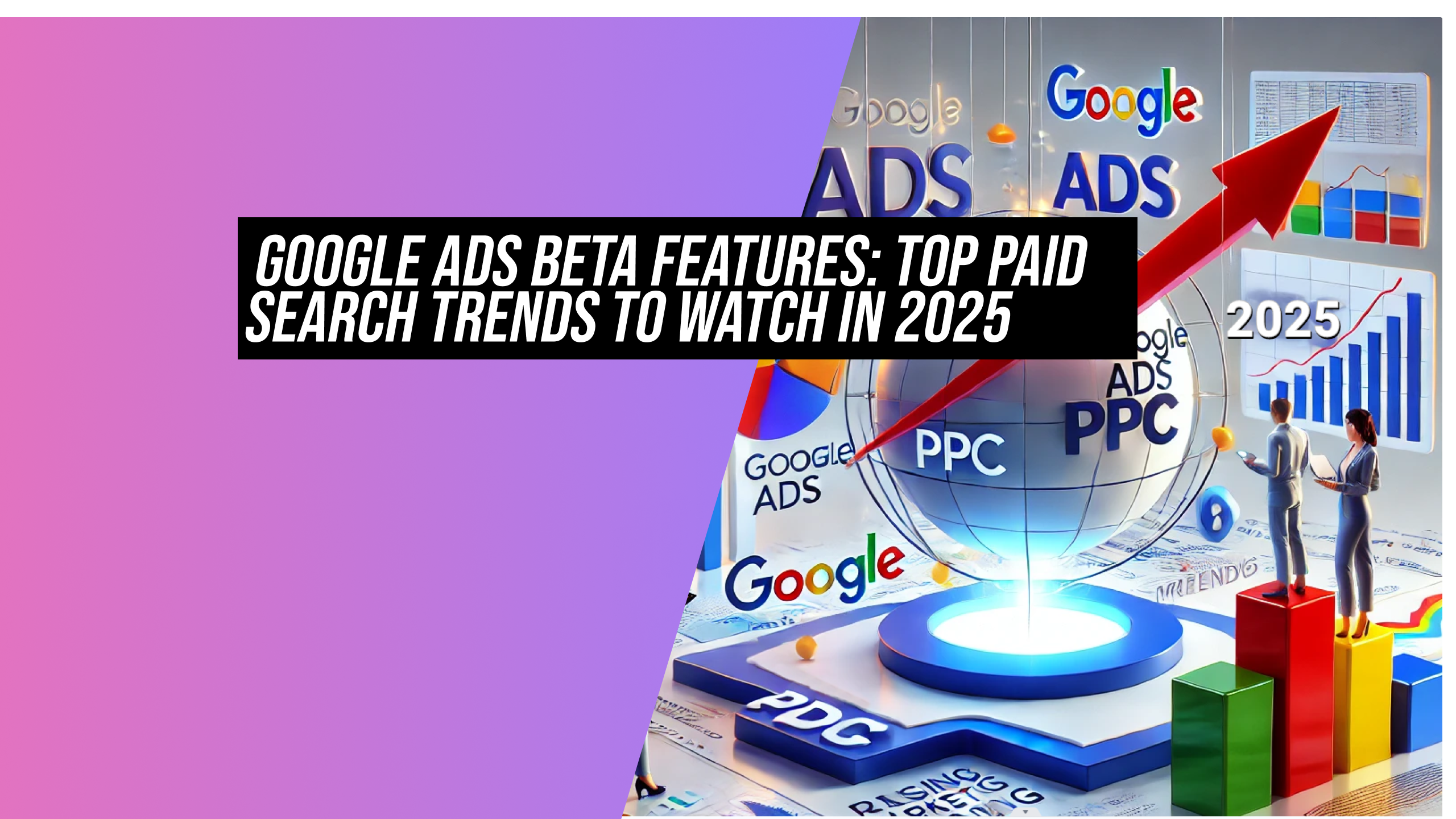A Comprehensive PPC Audit Checklist for 2023 Success
Imagine a world where your pay-per-click (PPC) campaigns are perfectly optimized, driving high-quality traffic, and generating impressive returns on investment. Sounds too good to be true? It’s not – all it takes is a comprehensive PPC audit! In this blog post, we will walk you through a detailed PPC audit checklist for 2023 success, ensuring that your campaigns are primed for peak performance.
Short Summary
- Comprehensive PPC audit checklist to ensure success in 2023.
- Regular audits are essential for maximizing ROI, adhering to platform changes and efficient budget management.
- Remain agile & adaptable with intelligence tools & trends to stay ahead of competitors.
Understanding PPC Audits

A PPC audit is a comprehensive assessment of your current campaigns. It helps to identify areas where improvements are needed to boost performance. To conduct a PPC audit, one typically assesses keywords, ad copy, landing pages, conversion tracking code configuration, remarketing codes, and budget management. Utilizing a PPC audit checklist can ensure a thorough analysis. Regular PPC audits can provide invaluable strategic insights.
One critical aspect of PPC audits is the Quality Score, an estimated metric that measures the quality of your ads, keywords, and landing pages on both Google Ads and Bing Ads platforms. Improving your Quality Score, by enhancing ad text and increasing relevancy, can be identified during a PPC account audit.
Connecting a PPC account to Google Analytics allows you to evaluate user behavior on your website after an ad click or impression, making it essential to obtain a list of known conversion goals before conducting an audit.
The Importance of Regular Audits

Regular audits are crucial to ensure your campaigns stay up-to-date with platform changes, account structure is optimized, and budgets are managed effectively. Regular audits include identifying areas for improvement, maximizing ROI from PPC advertising, ensuring compliance with platform changes, optimizing account structure, and efficient budget management.
Failure to conduct regular audits may lead to subpar conversions, sales, and profits. In other words, regular audits prevent eye fatigue and unproductive results, confirming campaigns are in line with platform modifications while optimizing account structure and overseeing budgets efficiently.
Adapting to Platform Changes
Adapting to platform changes is paramount for successful PPC campaigns, as new features and modifications can significantly impact the performance of campaigns. Recent developments in PPC platforms include the introduction of new platforms such as TikTok and Metaverse, the rising utilization of AI and automation, and modifications to the Google Ads dashboard.
Match-type settings, which dictate how closely the search query must correspond to your keyword for your ad to be displayed, can influence the number of clicks and the cost of the campaign. Staying agile and adapting to these changes is essential for maintaining a competitive edge in the ever-evolving world of PPC.
Evaluating Account Structure
Evaluating your account structure is the cornerstone of any successful PPC audit, as it reveals potential areas for improvement and optimization. Account structure in PPC refers to the organization of ads, campaigns, and keywords.
A well-structured account not only enhances ad performance but also makes it easier to manage and analyze your campaigns, ensuring optimal results from your PPC efforts.
Campaign Organization
Campaign organization is vital for ensuring that campaigns are well-structured and consistent, with tailored campaigns for each objective and target demographic. Organizing campaigns by match type enables you to identify keyword performance, manage negative keyword lists, and allocate budgets with ease.
Creating Single Keyword Ad Groups (SKAGs) is an effective way to maintain relevance. Allocating budget to the highest-yielding keywords can help optimize campaign performance and boost conversions.
A well-organized ad campaign leads to better results and a more efficient use of your advertising spend.
Ad Group Structure

Organizing ad group structure by theme, match type, and location enables more precise targeting and efficient budget allocation. A general rule of thumb is to have no more than 20 keywords per ad group to ensure that the budget is not diluted and insights are more easily formed.
Having separate search and display campaigns allows for more tailored strategies to meet the objectives of each channel. Including relevant keywords in a specific themed ad group can increase the chances of the search ads being seen by the target audience.
Naming Conventions
Naming conventions plays a crucial role in the clarity and organization of your PPC campaigns. A consistent and descriptive naming convention simplifies the process of recognizing campaigns and ad groups, making it easier for you and your team to manage and analyze your PPC efforts.
For example, a campaign name for a search campaign promoting jeans in the UK could be ‘Search – Branded – Jeans – UK. Including target keywords in ad group names helps maintain optimal organization. Utilizing labels for campaigns and ad groups further facilitates identification, sorting, and filtering.
Analyzing Keywords and Search Terms
Analyzing keywords and search terms is an integral part of a comprehensive PPC audit, as it identifies the most suitable keywords, refines and organizes them, and monitors their performance metrics. Enhancing keyword lists and verifying search intent can help guarantee relevancy, improve Quality Score, and maintain a lower cost per click (CPC).
By staying on top of keyword performance and search term analysis, you can make informed decisions that drive better results for your PPC campaigns.
Keyword Performance
Monitoring keyword performance is essential for optimizing your PPC campaigns. By analyzing metrics such as click-through rate, conversion rate, cost per click, and return on ad spend, you can identify non-performers and adjust bids accordingly.
This enables you to allocate your budget more effectively, ensuring that you’re investing in the best-performing keywords and maximizing your return on investment.
Negative Keywords
Negative keywords are crucial in PPC campaigns, as they prevent irrelevant search terms from triggering your ads. By excluding certain terms or phrases, you ensure that your ads are only displayed to users who are genuinely interested in your product or service, improving the overall performance of your campaigns.
Regularly reviewing your negative keyword list and utilizing reports to identify keywords that should be added can help maintain relevancy and enhance your Quality Score.
Keyword Opportunities
Identifying keyword opportunities is essential for increasing traffic and conversions. By analyzing buyer behavior and expanding your list of phrases, you can uncover new opportunities that align with your target audience’s search habits. Incorporating these opportunities into your existing campaigns or creating new campaigns based on these insights can help you stay ahead of the competition and drive better results from your PPC efforts.
By understanding the needs of your target audience, you can create more effective campaigns that are tailored to their interests. This will help you capture more qualified candidates.
Optimizing Ad Copy and Extensions
Optimizing ad copy and extensions is crucial for improving click-through rates and Quality Scores. Ad extensions, such as sitelink, callout, review, and app extensions, can enhance the value and relevance of your ads. Regularly rotating in new ads copy or images prevents audiences from becoming bored with seeing the same ads repeatedly.
Conducting an audit of ads extensions and ensuring they align with your conversion goals can help you optimize your campaigns for maximum performance.
Ad Copy Analysis
Ad copy analysis plays a vital role in optimizing your PPC campaigns. Effective ad copy should be relevant, clear, and contain a strong call-to-action. By using customer-focused language and avoiding jargon, you can ensure your ad copy resonates with your target audience.
A/B testing and analyzing metrics like click-through rate, conversion rate, and Quality Score can help you fine-tune your ads for maximum impact.
Ad Extension Optimization
Ad extension optimization involves using automated and manual extensions that complement your ad goals. Ensuring proper targeting, relevance, and correct formatting for your ads extensions can help improve click-through rates and overall campaign performance.
By regularly reviewing and optimizing your ads, you can enhance user experience and drive better results from your PPC campaigns.
Assessing Landing Pages and Conversions

Assessing landing pages and conversions is critical for improving Ad Quality Scores and user experience. By analyzing metrics such as page views, bounce rate, session duration, traffic source, and conversion rate, you can identify areas for improvement and optimize your landing pages accordingly.
A well-optimized landing page not only boosts your PPC campaign’s performance, but also ensures a seamless experience for your users.
Landing Page Relevance
Landing page relevance is an essential aspect of successful PPC campaigns. Regularly checking your landing pages for outdated content or discontinued products can help ensure that your ads remain relevant and effective.
By maintaining ad relevance through landing page optimization, you can boost ad click-through rate, Quality Score, conversion rates, and reduce cost-per-acquisition.
Conversion Tracking Setup
Verifying your conversion tracking setup is crucial for accurately measuring the success of your PPC campaigns. Ensuring conversions are configured correctly and that conversion events only trigger once per distinct user is vital for lead generation.
Utilizing tools like Google Tag Manager and Google Analytics, you can ensure that conversion tags are firing correctly and monitor any potential interferences with conversion tracking.
Reviewing Bidding Strategies and Budgets

Reviewing bidding strategies and budgets is essential for aligning your campaigns with your business goals. By analyzing factors such as click-through rate, cost per click, conversion rate, and return on ad spend, you can identify areas for improvement and make informed decisions on how to allocate your budget more effectively.
Regularly reviewing your bids and budgets ensures that your campaigns are running optimally and that you’re investing in the best-performing keywords and campaigns.
Bidding Strategy Analysis
Bidding strategy analysis should consider factors like budget, competition, and audience. By assessing different bidding strategies, such as manual bidding, automated bidding, and enhanced cost-per-click (ECPC), you can identify the most effective approach for your PPC campaigns.
Regularly reviewing and adjusting your bidding strategies can help you stay ahead of competitors and maximize your return on investment.
Budget Management
Effective budget management is crucial for optimizing your PPC campaigns. By regularly monitoring your ad spend and reallocating funds to the best-performing campaigns, you can ensure that your budget is used efficiently and that you’re investing in the campaigns that offer the greatest return.
Regular tracking and adjusting of your budget is essential for PPC success and can help you avoid wasting valuable ad dollars.
Examining Targeting Options
Examining targeting options is essential for optimizing your PPC campaigns and saving costs. By exploring different targeting options, such as location, audience, and device targeting, you can refine your campaigns and deliver more relevant ads to your target audience.
Regularly reviewing and adjusting your targeting options can help you avoid inflated cost-per-acquisition rates and maximize your return on investment.
Location Targeting and Exclusions
Location targeting and exclusions play a vital role in optimizing your PPC campaigns. By targeting or excluding specific geographic areas, you can ensure that your ads are displayed to the most relevant users and avoid wasting ad spend on irrelevant clicks.
Regularly reviewing and adjusting your location targeting and exclusions can help improve the overall performance of your campaigns.
Device and Platform Targeting
Device and platform targeting is crucial for optimizing your PPC campaigns, including the effectiveness of each individual PPC ad. By focusing your campaigns on specific devices and operating systems, you can ensure that your PPC ads are reaching the right audience and achieving optimal performance.
Regularly reviewing and adjusting your device and platform targeting can help you stay ahead of competitors and maximize your return on investment.
Monitoring Performance Metrics
Monitoring performance metrics is essential for identifying areas of improvement and opportunities for optimization. By regularly reviewing your campaigns and analyzing key performance indicators such as click-through rate, conversion rate, cost per click, and impression share, you can make informed decisions on how to optimize your campaigns for better results.
Tracking and analyzing performance metrics is a critical component of continuous optimization and PPC success.
Key PPC Metrics
Focusing on key PPC metrics is crucial for accurately measuring the success of your campaigns. Prioritizing and analyzing important metrics like click-through rate, cost per click, conversion rate, return on ad spend, and impression share can help you identify areas for improvement and make informed decisions on how to optimize your campaigns for better results.
By regularly analyzing these key metrics, you can ensure that your PPC campaigns are running optimally and achieving maximum ROI.
Interpreting Data
Interpreting data is essential for making informed decisions and adjusting your PPC campaigns accordingly. By analyzing key performance indicators such as click-through rate, conversion rate, cost per click, and impression share, you can identify areas for improvement and optimize your campaigns for better results.
Regularly reviewing and interpreting your PPC data can help you stay ahead of competitors and maximize your return on investment.
Implementing Continuous Optimization
Implementing continuous optimization is the key to staying ahead in the constantly evolving world of PPC. This involves retrying old rules and testing new ones, allowing you to adapt to changing trends and stay one step ahead of your competitors.
By regularly monitoring and adjusting your campaigns based on performance data, you can ensure that your PPC efforts are always optimized for maximum success.
Regular Audits and Adjustments
Planning regular audits and adjustments ensures that your PPC campaigns are always performing at their best. By conducting quarterly audits, you can measure campaign performance, identify areas for improvement, and make necessary adjustments to ensure optimal results.
Regular audits and adjustments not only help you maintain a competitive edge, but also ensure that your PPC campaigns are primed for peak performance.
Staying Ahead of Competitors
Staying ahead of competitors requires constant vigilance and adaptability in your PPC campaigns. By monitoring competitors’ activities, analyzing their PPC strategy, and adjusting your campaigns accordingly, you can maintain a competitive edge and drive better results.
Utilizing ad intelligence tools like SEMrush, SpyFu, and AdBeat, as well as staying abreast of the latest PPC trends and strategies, you can ensure that your PPC campaigns are always ahead of the curve.
Summary
In conclusion, a comprehensive PPC audit is crucial for optimizing your campaigns and achieving maximum success. By following the PPC audit checklist outlined in this blog post, you can ensure that your campaigns are aligned with platform changes, account structure is optimized, budgets are managed effectively, and you’re staying ahead of competitors. Regular audits and adjustments are the key to maintaining a competitive edge and driving impressive returns on investment from your PPC advertising efforts. So, what are you waiting for? Start optimizing your PPC campaigns today and unlock your full potential!
Frequently Asked Questions
What is PPC in audit?
PPC audit is a valuable tool for any business looking to maximize its return on investment from PPC campaigns. It provides an in-depth assessment of your account performance, highlighting opportunities for optimization and helping you get the most out of your campaign.
As such, it’s a critical part of running successful online marketing initiatives.
What does PPC stand for?
PPC stands for Pay-Per-Click – a method of internet marketing in which advertisers pay a fee each time one of their ads is clicked on. PPC allows companies to easily track the effectiveness of their advertising campaigns, as well as measure the number of website visits generated from the advertisements.
It’s an effective way of driving targeted traffic to your website.
How do I run a PPC audit?
To run a successful PPC audit, it is essential to double-check conversion tracking settings, assess PPC account structure, review keywords and search terms, analyze ads copy, optimize ads extensions, audit sales landing pages, review bid strategy, and monitor ROI and ROAS.
By following this comprehensive approach, you can ensure an effective PPC audit.
What is the importance of PPC audit?
A PPC audit is a vital part of any successful PPC program. It helps advertisers identify potential problems and issues, as well as areas for improvement to drive more efficient use of resources and better ROI.
By finding and addressing inefficiencies with campaigns, advertisers can optimize their advertising budget while also improving performance.
How do you audit a PPC campaign?
To audit a PPC campaign effectively, it is important to double-check conversion tracking settings, assess PPC account structure, review keywords and search terms, analyze ad copy, optimize ad extensions, audit sales landing pages, review bid strategy, and listen to ROI and ROAS.
Taking these steps will help ensure the effectiveness of your PPC campaign.






